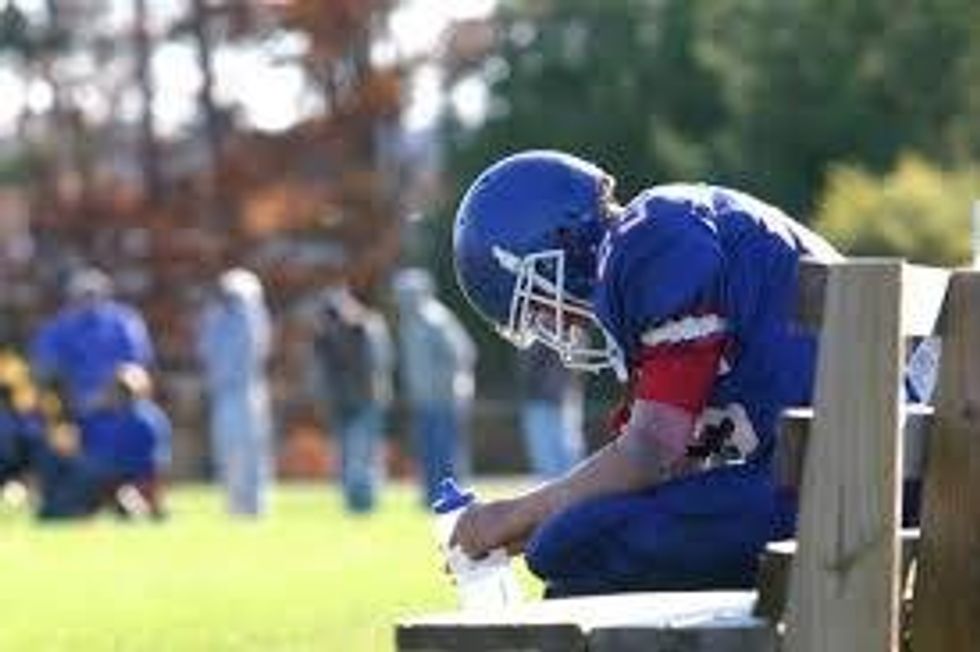May is Mental Health Month, and I want to shine a light on mental health in college athletes. Mental health is no joke and it is definitely not talked about enough. A lot of people don't talk about mental health in student athletes because there isn't enough information.
You ask yourself, "How could student-athletes have mental health issues?" Many believe it's not possible for student-athletes to fall into mental illness because of the lives they live. They just have to play their sport, right? Wrong. Suicide is the third leading cause of death in collegiate athletes. A track runner for Penn State is one of the student-athletes who committed suicide. Holleran died after jumping from a parking garage over the stress of grades and her sport.
Mental health needs to be just as important as physical health in college athletic programs. Mental health doesn't just mean forms of depression this also extends to eating disorders. Anorexia or bulimia is twice as rampant among athletes versus the general population of women, according to the National Association of Anorexia Nervosa and Associated Disorders (ANAD). Mental health continues to go unnoticed because no one wants to admit the need help. In 2013, Chief Medical Officer Dr. Brian Hainline declared mental health as the number one health and safety concern in the NCAA. There are more than 200 pages of mental health documents buried deep in the NCAA website, a quarter of which focus on women's issues alone.
Collegiate athletes face the risk of mental health just like non-athletes. Every year the NCAA holds medical screenings and trainings for athletes. How come mental health is not included in those screenings? The NCAA states in their Introduction to Mind, Body, and Sport on their website that suicide is the third leading cause of death in student athletes, yet we still do not have enough resources. Athletes face the risk of pressures from their sport, time demands, ability to perform in their sport, etc. As a student-athlete myself, I feel the constant pressure from my coaches and the pressure I put on myself to perform at the highest level. Underneath the demands of the sport, student-athletes face a much bigger issue. It could be anxiety, depression, or eating disorders.
Student athletes face a constant struggle with juggling their sport and their life. They are more likely to suffer from mental health issues. They are worried about injuries, performing well, missing family gatherings. These all aid to depression, anxiety, and eating disorders.
Student athletes are now speaking publicly about their mental health issues. Aaron Tyler is an example of one student-athlete who faced depression and anxiety through his football career at Notre Dame. Tyler states, "I later discovered that many of my issues stemmed from the internal pressure I placed on myself to reach some unattainable level of greatness as a way to mitigate the effects of an early childhood divorce and a variety of other challenges. I brought these issues with me to campus, but no one was the wiser, as my ‘game face' helped hide my condition with relative ease…even from myself." After some students have spoken publicly about their mental health issues, NCAA interviewed students about mental health. After interviewing the athletes mental health is their number one concern.
It's student athletes like Michigan's football player Will Heininger who have helped shine a light on mental health. Even he was reluctant to share his depression, but after a breakdown on the practice field, he realized seeking help was the only option to relieve his depression. Heininger wishes they had a psychologist or more resources at the time of his depression. Some schools have counseling centers, but they aren't enough resources to deal with athletics.
Many athletes don't speak out because they are afraid they are not supposed to feel that way. They feel like they need to obtain an upbeat personality, go to class, practices, and act like nothing is bothering them. Many are also afraid their scholarship will be taken away from the result of their mental illness. We need to remove the stigma surrounding mental health. Athletes who seek treatment for the mental illness is just one in 10. Raising awareness for this issue will allow more athletes to seek treatment for their illness.
To the college athlete reading this or friends and family of college athletes, make sure mental health is being talked about. There is nothing to be embarrassed about because odds are some other athletes are facing the same issues. Teammates, friends, and family can play a key role identifying symptoms of mental illness and help them receive treatment.





















